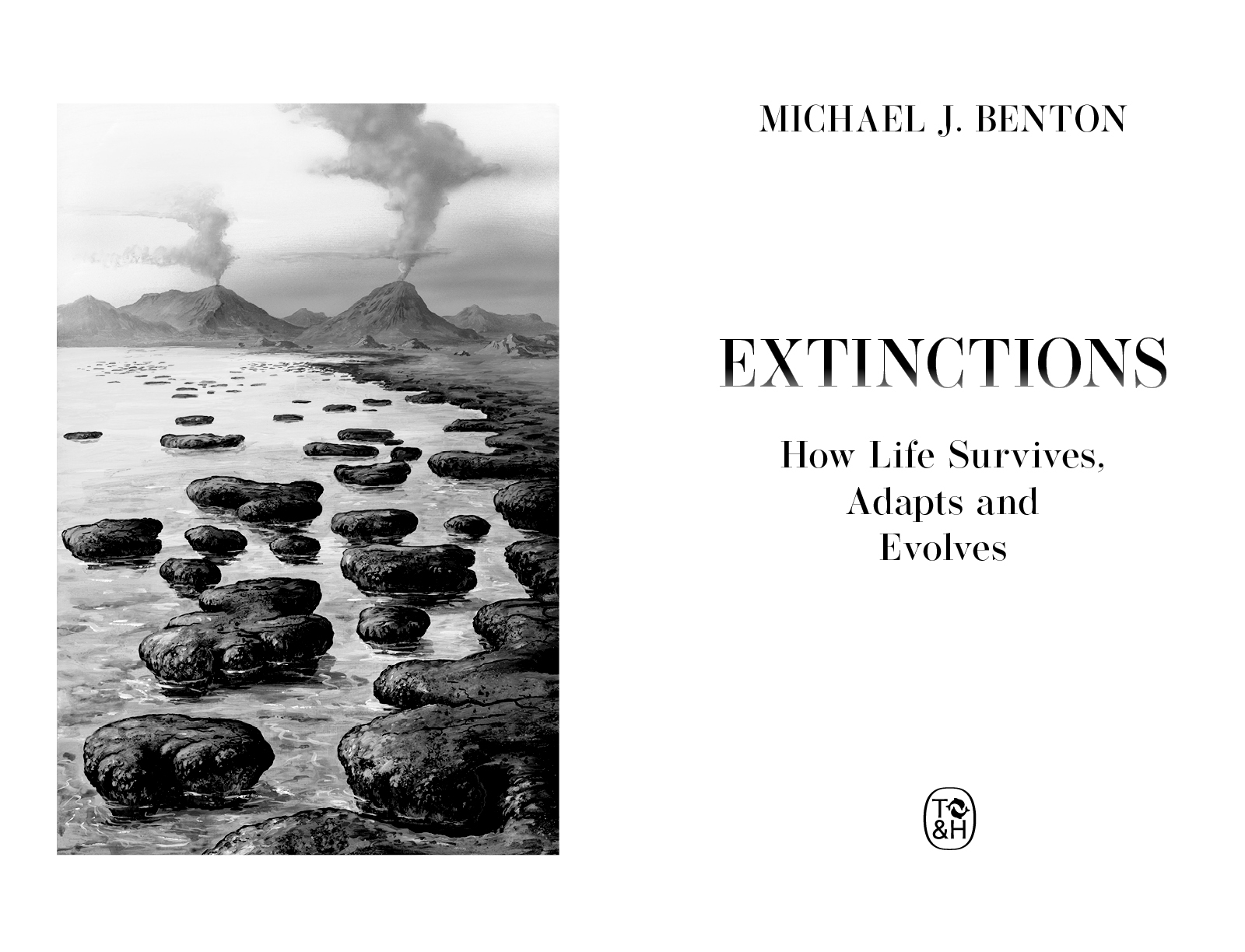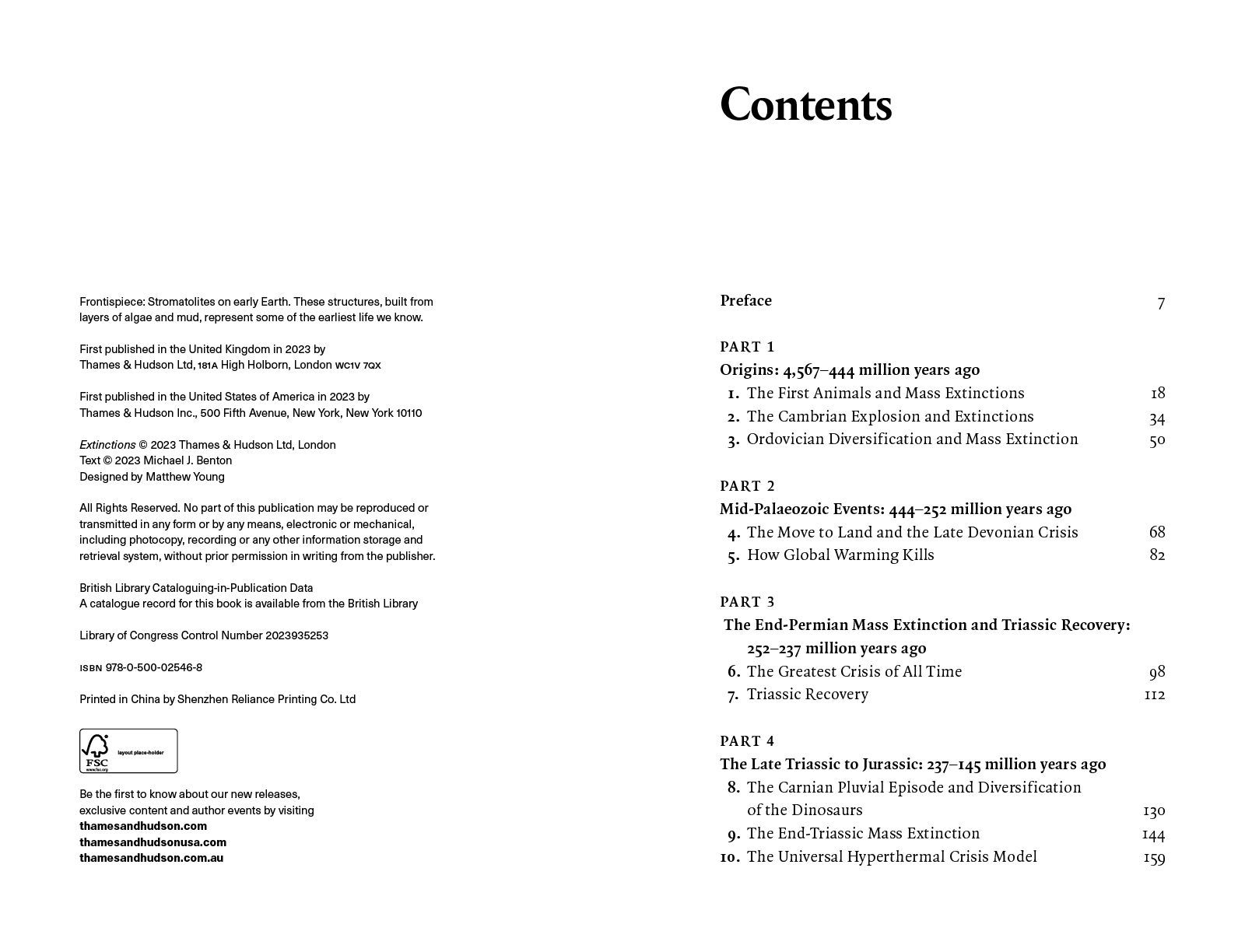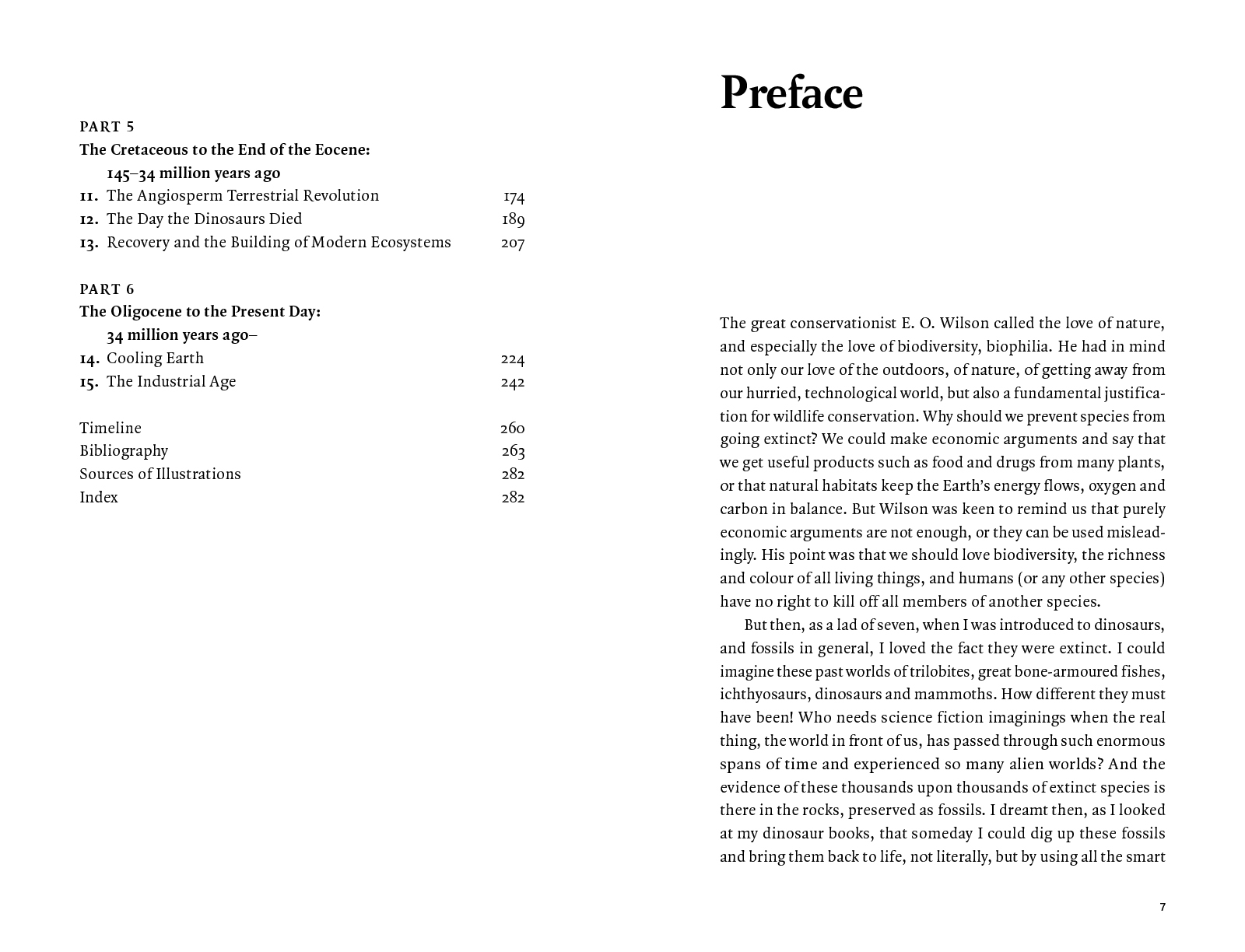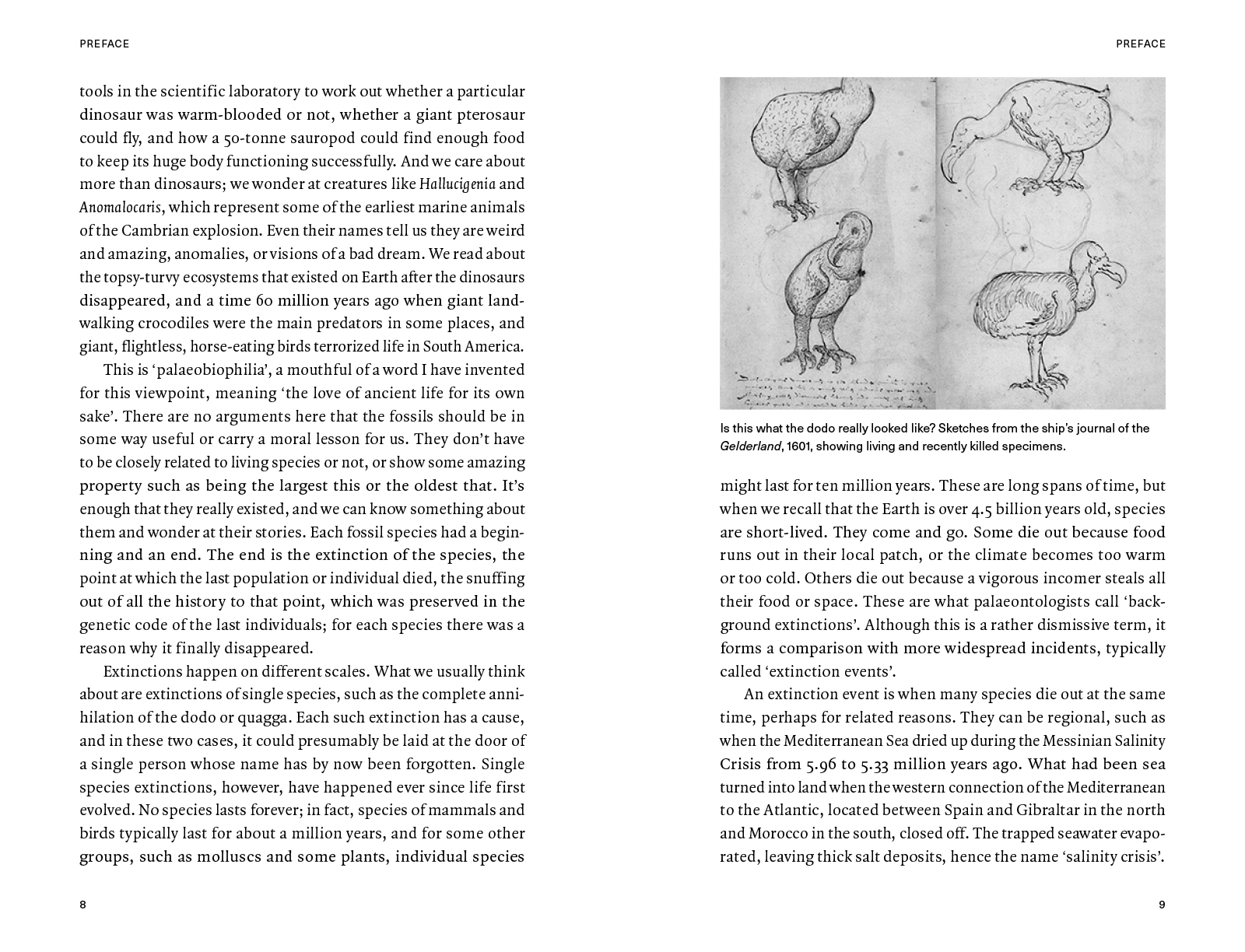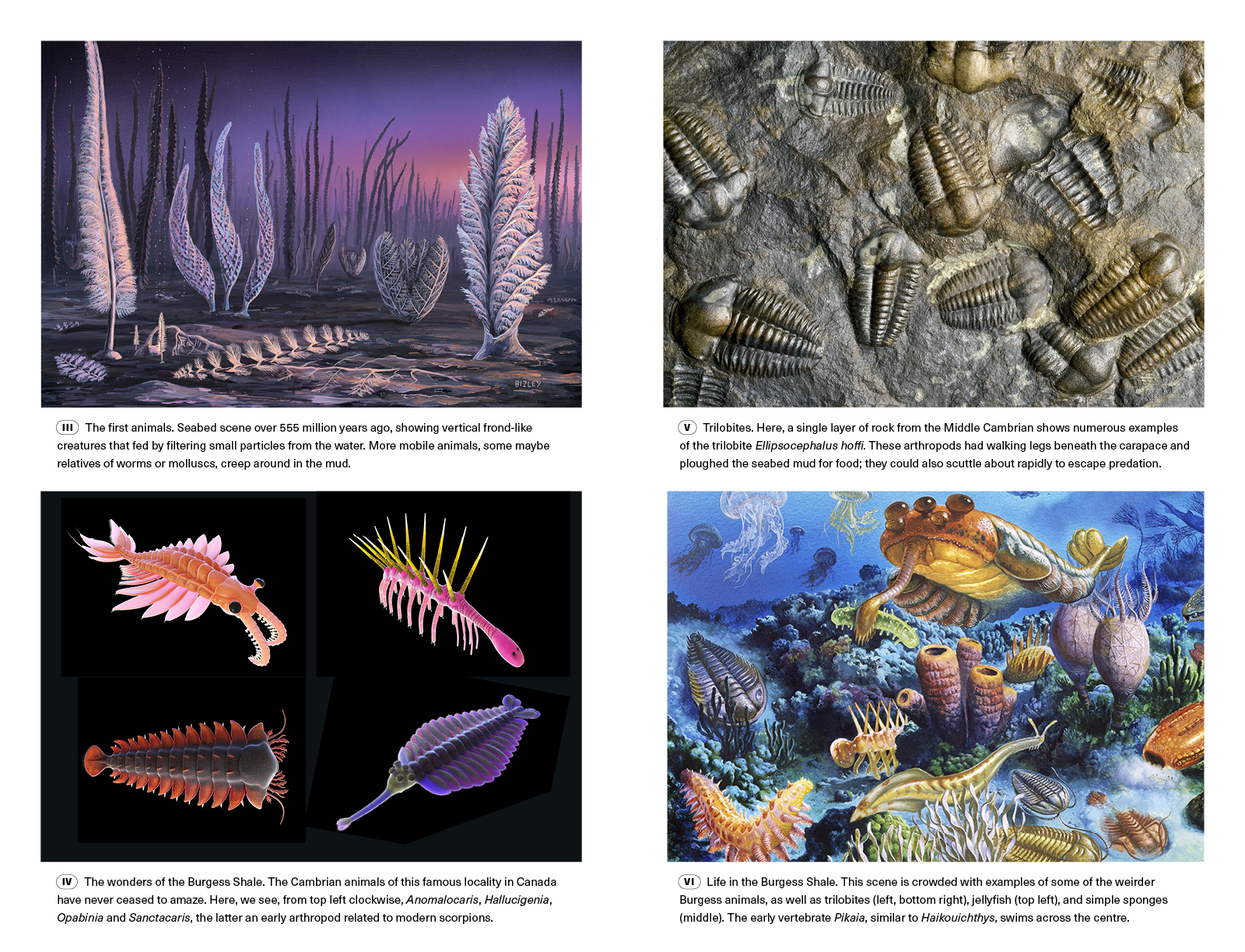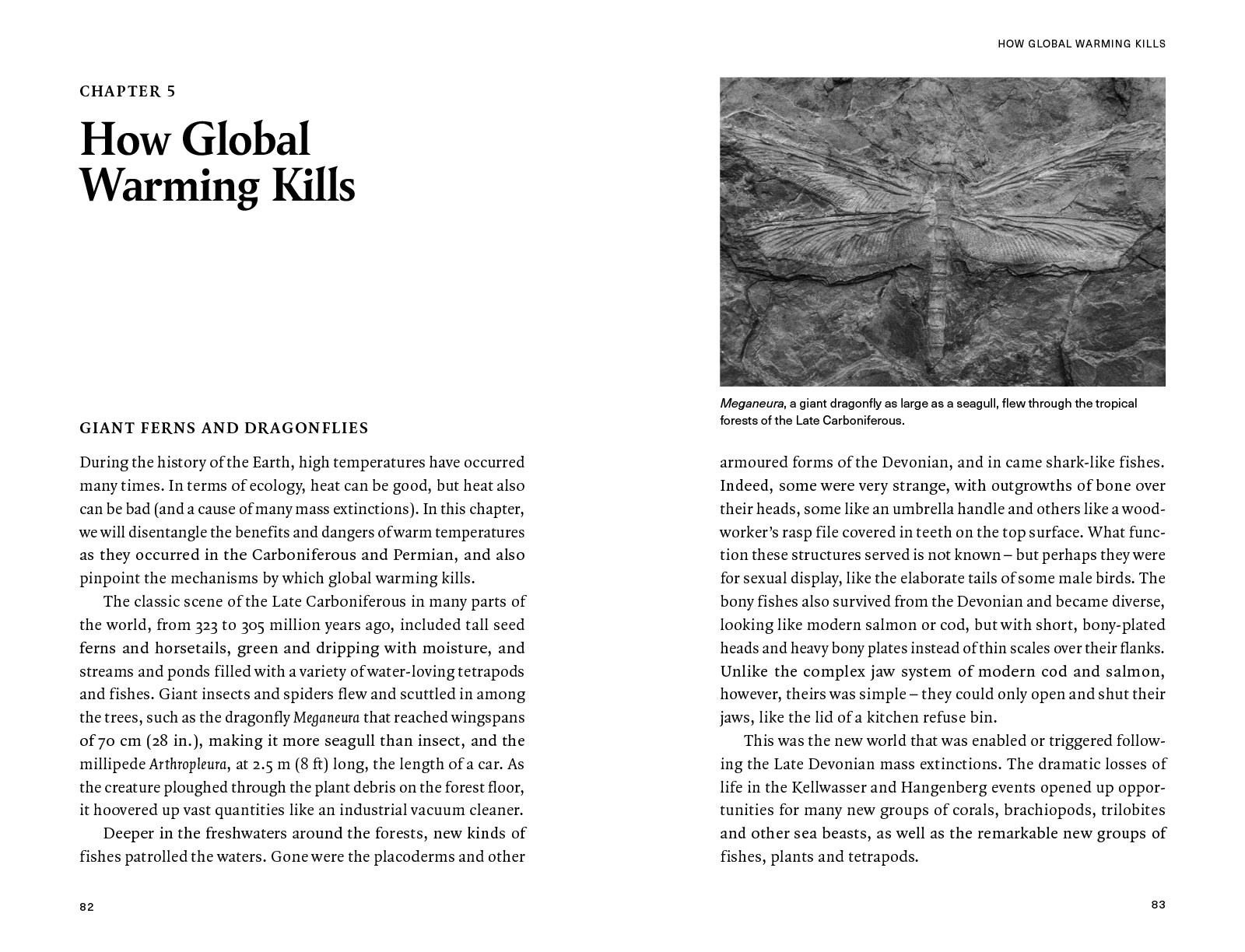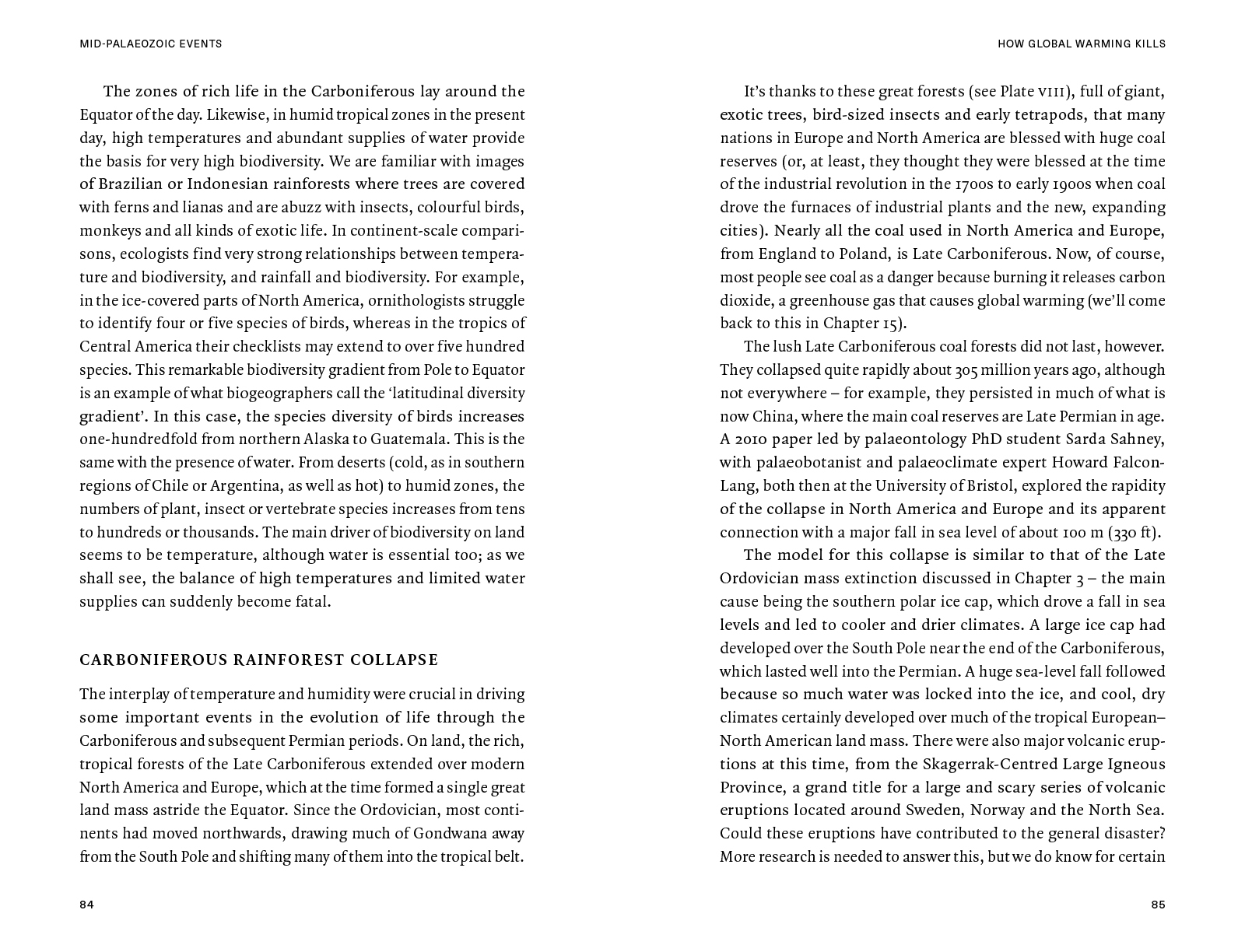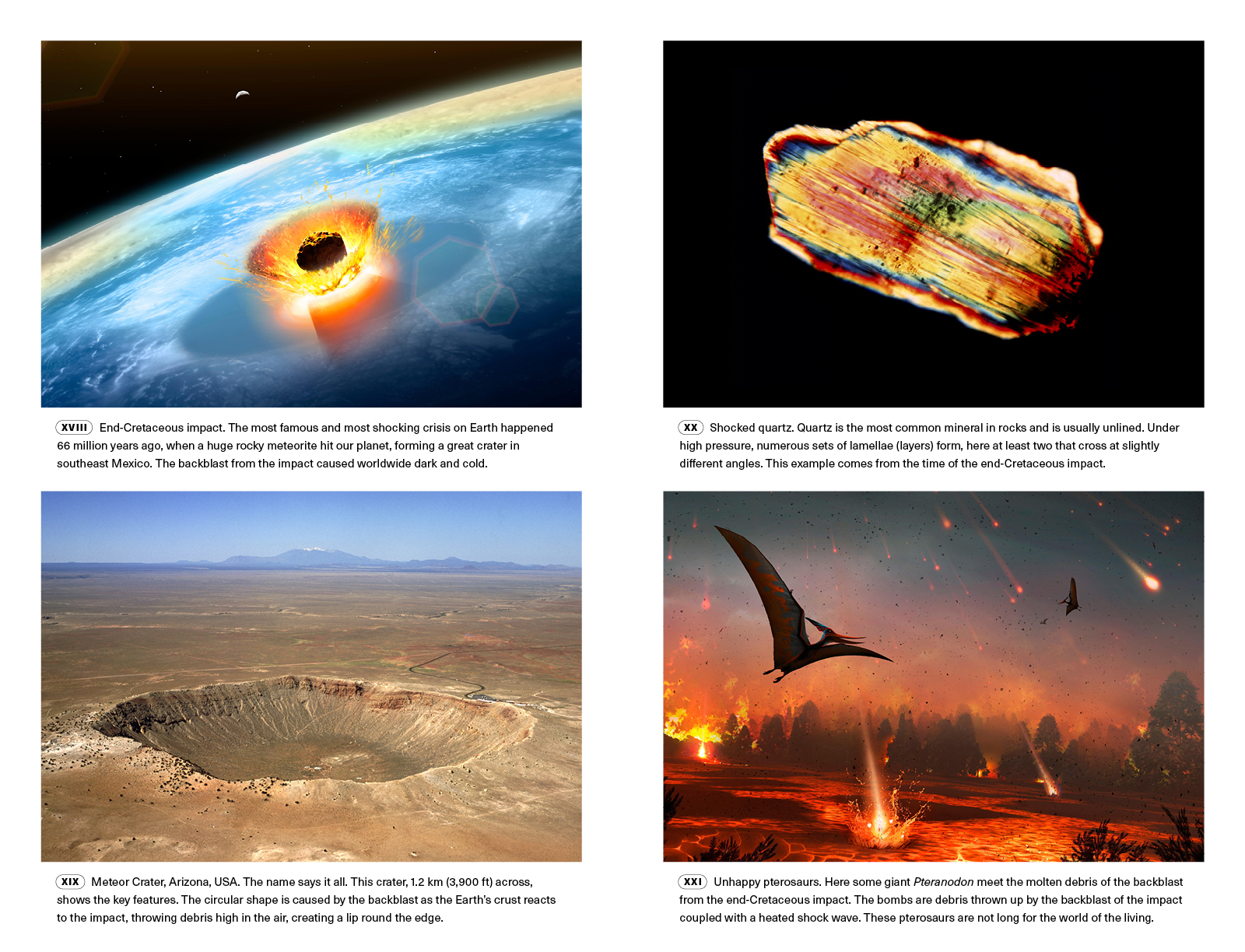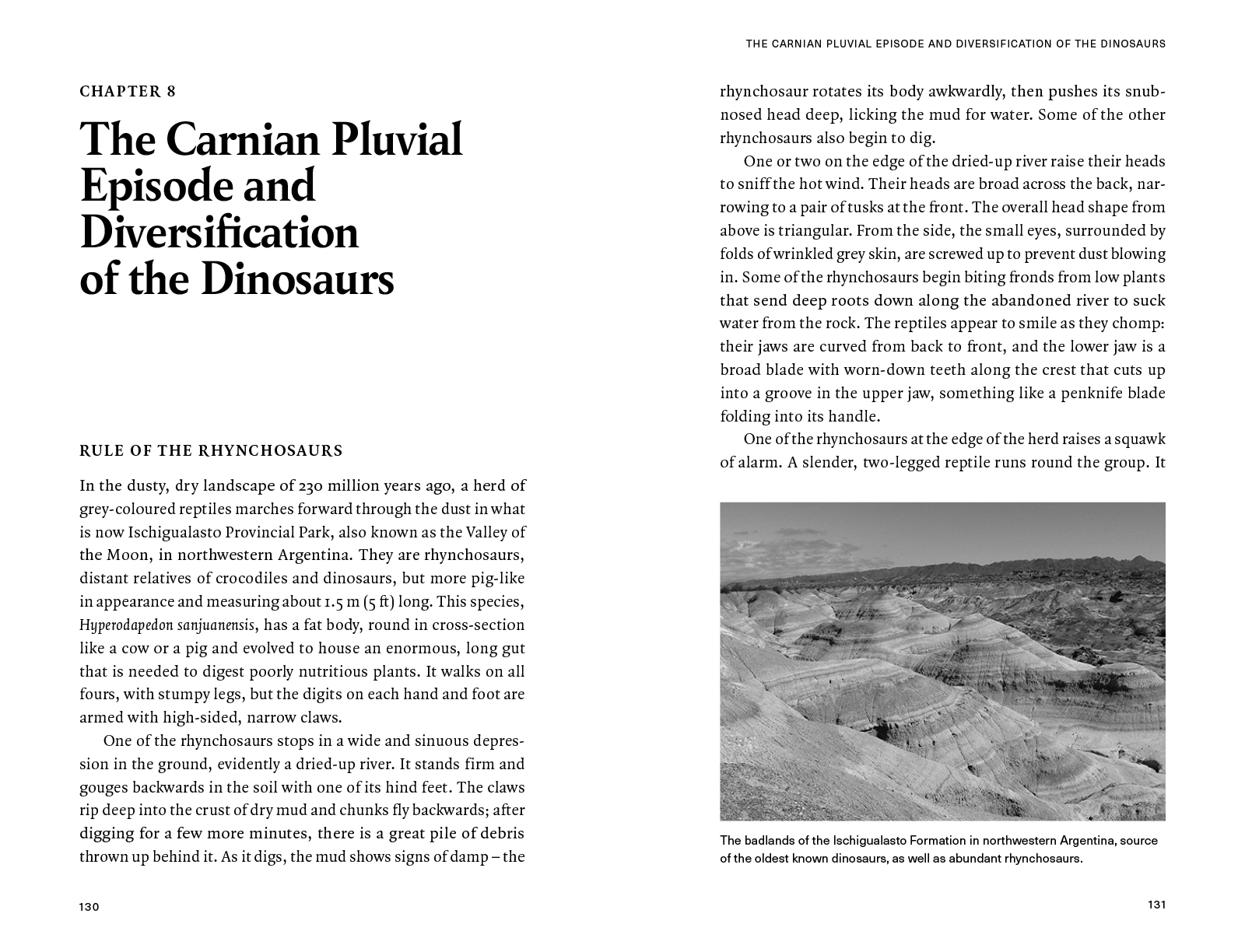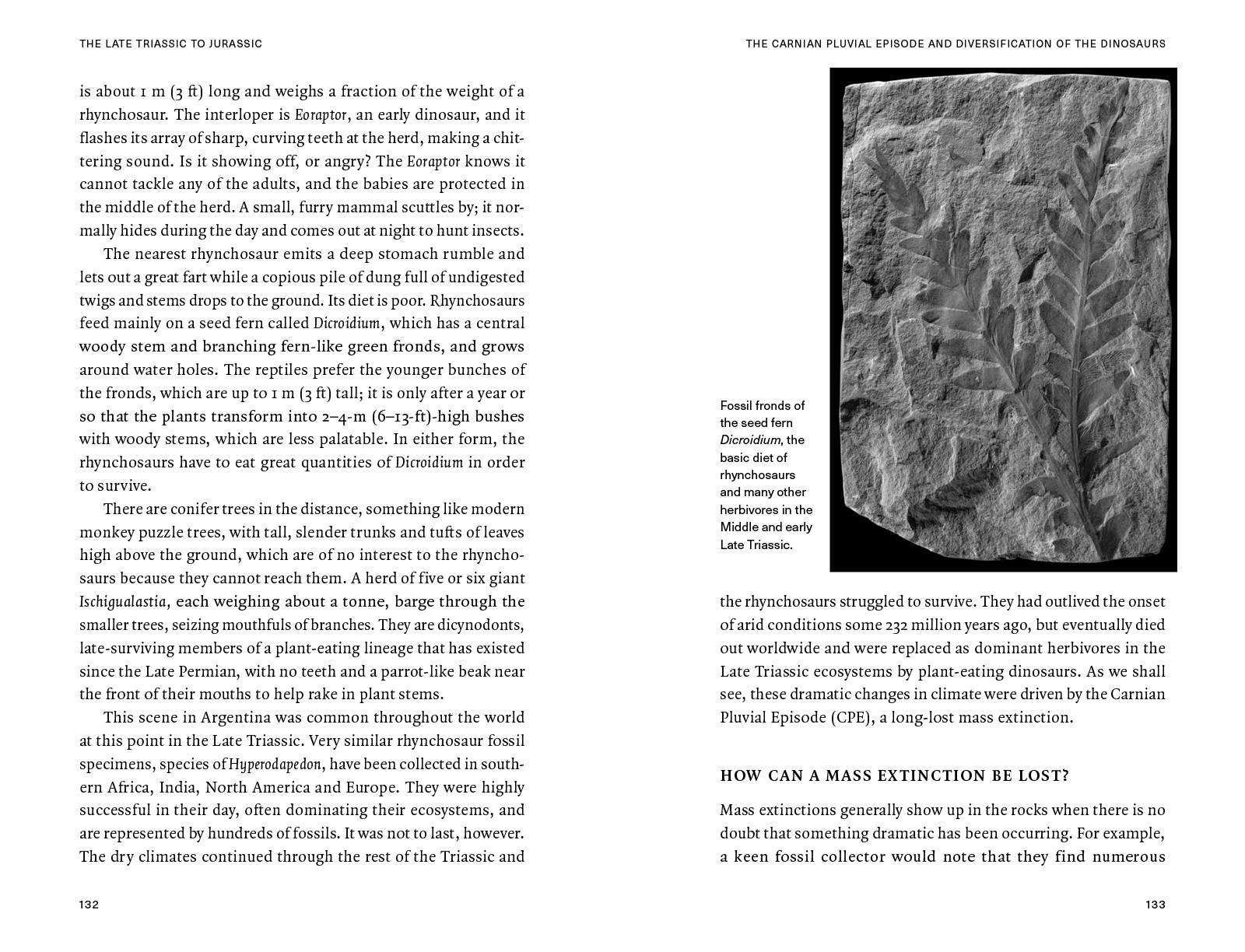This timely and original book lays out the latest scientific understanding of mass extinction on our planet. Cutting-edge techniques across biology, chemistry, physics, and geology have transformed our understanding of the deep past, including the discovery of a previously unknown mass extinction. This compelling evidence, revealing a series of environmental crises resulting in the near collapse of life on Earth, illuminates our current dilemmas in exquisite detail.
Beginning with the oldest, Professor Michael J. Benton takes us through the “big five” die outs: the Late Ordovician, which set the evolution of the first animals on an entirely new course; the Late Devonian, apparently brought on by global warming; the cataclysmic End-Permian, also known as the Great Dying, which wiped out over 90 percent of alllife on Earth; the newly discovered Carnian Pluvial Event; and the End-Cretaceous asteroid. He examines how global warming, acid rain, ocean acidification, erupting volcanoes, and meteorite impact have affected conditions on Earth, and how life survived, adapted, and evolved.
Benton’s expert retelling of scientific breakthroughs in paleobiology is illustrated throughout with photographs of fossils and fieldwork, and artistic reconstructions of ancient environments. In Extinctions, readers will learn about revolutionary new tools used to uncover ancient extinction events and processes in forensic detail, and how scientists are improving our understanding of the deep past. New research allows us to link long-ago upheavals to crises in our current age, the Anthropocene, with important consequences for us all.
Contributors
Michael J. Benton
Author
Michael J. Benton OBE is head of the world-leading Palaeobiology Research Group at the University of Bristol. He has written more than fifty books, including Dinosaurs: New Visions of a Lost World, Dinosaurs Rediscovered, and When Life Nearly Died.


